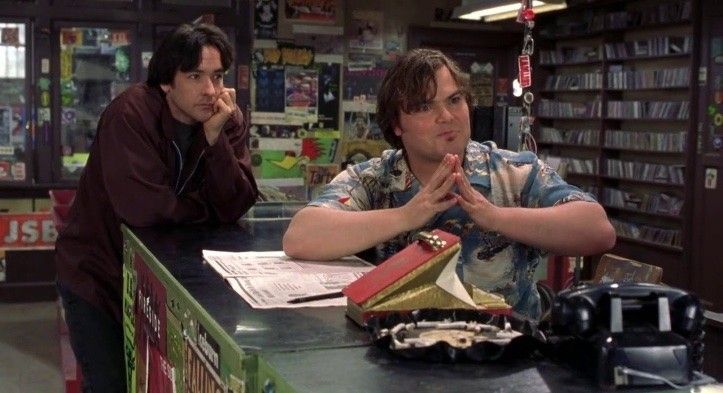This business needs much braver people.
Are you as terrified reading this as I am writing it?
Right now, Hollywood is a place filled with fear and anxiety, and we have to break that mold if we’re going to get original narration back.
Hollywood is known for producing some of the most iconic and influential films in history, but behind the glamor and glitz lies a culture of fear and risk aversion among many leaders. Despite the significant resources and talent at their disposal, Hollywood executives often prioritize profit over creativity and originality, resulting in a proliferation of sequels, redoneand formula films.
In this context, it is worth exploring why Hollywood executives are driven by fear and what factors contribute to this trend. From the pressure to maintain a positive public perception to the need to appease investors, there are many reasons why leaders may be reluctant to take creative risks.
By understanding the drivers of this culture of fear, we can better understand the challenges and opportunities facing the film industry today.
Let’s dive into it.

Why are Hollywood leaders driven by fear?
One of the hardest things about getting a project off the ground in Hollywood is that the leaders are driven by fear. They want to keep their jobs. Taking a risk could cost them everything, so they’re very careful about what gets the green light and who they hire.
I want to be mad at them all the time, but I feel like it’s best to figure out why this is happening and work with them to be brave together.
There are several reasons Hollywood executives might be driven by fear:
-
Risk aversion: Hollywood is a highly competitive industry, and executives are often under pressure to achieve high profits and box office returns. To minimize the risks associated with investing in movies, executives may be more inclined to choose projects that have a proven track record or are similar to successful movies in the past. This risk aversion can lead to a lack of creativity and originality in the films produced. Why try something weird or new if it costs you everything? How can you justify it in a board meeting?
-
Public Perception: The success or failure of a film can have a significant impact on public perception of a studio or executive. A string of box office failures can be seen as a sign of incompetence or a lack of vision, which can hurt an executive’s career. This can lead to focusing on producing safe and predictable films rather than taking risks on new and innovative ideas. Nobody wants their name on a huge flop, especially when it’s about what you’ve been doing for me lately.
-
Investor pressure: Hollywood studios are often owned by large corporations or investment companies, which are primarily concerned with making a profit. These investors can pressure executives for returns, which can lead to prioritizing box office success over artistic integrity or creativity. The biggest problem with Hollywood right now is that commerce is valued over art. And these big corporations that have bought studios are forcing them to do only what they perceive can make money, instead of taking risks.
The competitive, high-stakes nature of the film industry, combined with pressure from investors and the need to maintain a positive public perception, can instill fear and risk aversion among Hollywood executives.

How can a screenwriter or director pursue a career if Hollywood executives are driven by fear?
As I mentioned above, no matter what, you still have to work in this city. So how can you work in a market dominated by fear? Well, find brave people who want to do good things. Also, work with people who are scared to become the kind of person you can count on in this tumultuous industry.
Although Hollywood executives may be driven by fear, it is still possible for a screenwriter or director to pursue a career in the film industry.
Here are some strategies that can help you actually work in this city:
-
Build a solid reputation: One of the best ways to overcome the risk aversion of Hollywood executives is to build a strong reputation as a writer or director. This can be done by creating high quality work, winning awards and gaining critical acclaim. By building a reputation as a talented and innovative artist, you may be able to convince executives to take a chance on your ideas. Be someone they can rely on to get things done. Someone who brings out the best in them too.
-
Network and collaborate: In addition to creating great work, it’s important to build relationships with other industry professionals. Networking and collaborating with other writers, directors, producers, and executives can help you access opportunities and resources that might not otherwise be available. Meet people. Helping people. Create an environment
-
Look for alternative funding sources: If Hollywood executives are reluctant to invest in your projects, there may be other sources of funding that can help bring your ideas to life. This could include crowdfunding platforms, grants or independent investors.
-
Adopt independent cinema: Another option is to embrace independent filmmaking and focus on making films outside of the Hollywood system. It can be a difficult path, but it can also provide more creative freedom and control over your work.
Ultimately, although the risk aversion of Hollywood executives can make it difficult to pursue a career in the film industry, there are still opportunities for screenwriters and directors who are willing to be persistent, creative. and flexible in their approach.

Summarize Why are Hollywood leaders driven by fear?
Hollywood executives are often driven by fear due to a variety of factors, including risk aversion, public perception, and investor pressure. These factors can create a culture of safety and risk avoidance, which can limit the creativity and originality of the films produced.
However, it’s important to note that not all Hollywood executives are driven by fear, and there are many examples of successful movies that took risks and pushed boundaries.
As the film industry continues to evolve and adapt to changing audience preferences, it will be interesting to see how Hollywood executives balance the need for profitability with the desire to create innovative and thought-provoking films.
